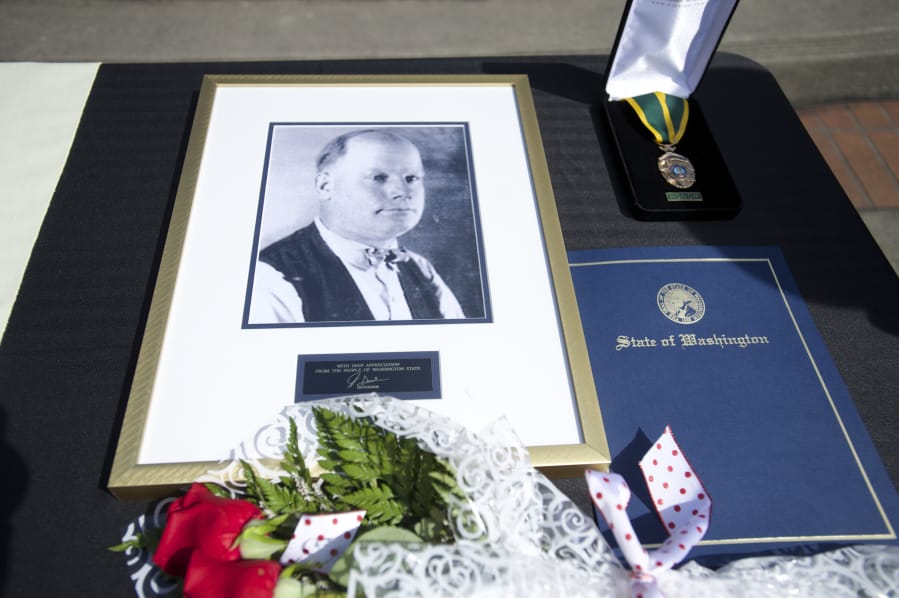Clark County Sheriff Lester Wood pinned his star on his coat, grabbed his shotgun, and led three deputies up the trail.
Wood had only been sheriff for a few months, but he knew he was walking into danger on that Sunday afternoon, May 22, 1927. Prohibition was the law of the land, and a man named Douglas Lowery had been caught transporting moonshine. Now deputies were searching Dole Valley for Lowery’s source.
About 4:30 p.m., Wood and two of his deputies — Ben Miller and Roy Johnson — crossed a foot log across Rock Creek and headed, single file, up a narrow trail toward the point where three deputies had been accosted that morning.
Suddenly a man with a rifle emerged from the bushes and blocked the trail about 60 feet in front of the lawmen.




